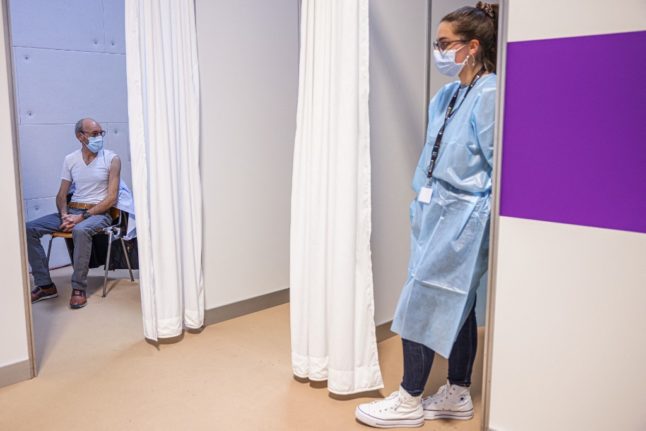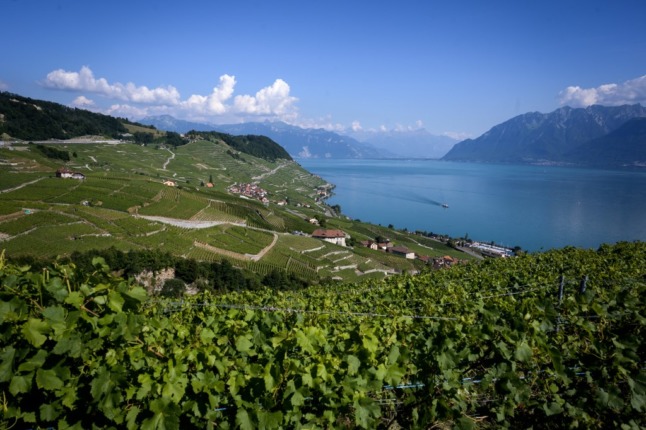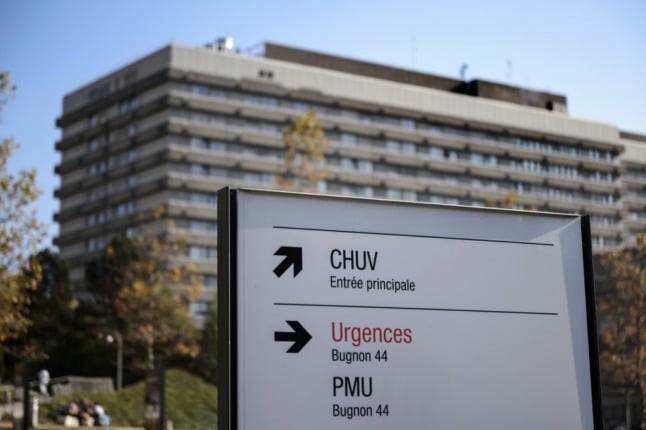The canton, which last week inoculated only those over the age of 50, announced on Monday that “everyone 18 and up” can now get their shots in one of its 14 vaccination centres, in addition to some pharmacies and doctors’ offices.
As soon as the announcement was made, 40,000 people tried to log into the online registration system at the same time, causing it to temporarily collapse.
This makes it the first of Switzerland’s 26 cantons to open up vaccines to the entire general public, SRF reports.
This expansion and inclusion of all age groups is possible due to the delivery of new doses of the Moderna and Pfizer vaccines, as well as the recent openings of two “vaccinodromes”, at the Beaulieu conference centre in Lausanne and the convention complex in Montreux, both capable of vaccinating thousands of people each day.
READ MORE: Inside Switzerland’s two new, large-scale Covid-19 vaccination centres
“To date, more than 83 percent of the chronically ill are vaccinated, two-thirds of those over 75, and more than half of people between 65 and 74 years,” cantonal authorities said.
What is the situation in the rest of Switzerland?
After a slow rollout beset by late deliveries and supply shortages, the country’s vaccination programme is picking up its pace, with millions of doses expected to arrive between now and the end of July.
Federal authorities have told cantons to dip into their “second dose” reserves to speed up the pace of inoculations.
READ MORE: Switzerland tells cantons to use up their vaccine reserves
Until April 21st, nearly 2.3 million people in Switzerland received at least one dose of the vaccine, and about 824,000 got both shots, according to the Federal Office of Public Health (FOPH).
As this FOPH map shows, cantons of Geneva, Neuchâtel, Basel-Country, and Schaffhausen are Swiss champions in the rate of vaccinations, followed by Uri, Graubünden, and Ticino.

On the other hand, Zurich lags behind all the other cantons.
READ MORE: Thousands of vaccination appointments still available in Zurich in April
This table shows the number of vaccines administered in each canton.






 Please whitelist us to continue reading.
Please whitelist us to continue reading.
Member comments